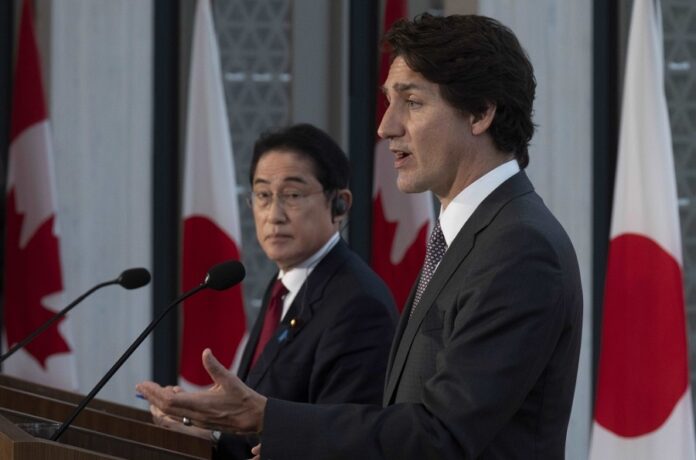Japanese Prime Minister Fumio Kishida is looking to Canada to help his country wean itself off fossil fuels from places such as Russia, according to AP News.
Kishida was in Ottawa on Thursday for his first visit as Japan’s head of government, as part of a tour of other Group of Seven countries.
Japan holds the G-7 presidency this year and is set to host meetings with the leaders of some of the world’s richest countries. The group includes Britain, Canada, France, Germany, Italy, Japan and the United States, plus the European Union.
Tokyo plans to use the presidency to coordinate with other states on economic management and punish Russia for its invasion of Ukraine.
The visit comes during a time of geopolitical alignment between Japan and Canada, both of which have recently singled out China as a threat to stability in the region.
A new Japanese defense strategy unveiled last month included working with allies to ward off threats from North Korea and China, and made it legal for Japan to conduct military strikes against enemy bases. Tokyo is boosting its military spending by 26% in just one year.
Meanwhile, a regional trade deal launched in 2018 has helped both countries expand trade with each other’s markets. Under the Comprehensive and Progressive Trans-Pacific Partnership, Canada has increased its exports of pork and oil to Japan, while it has brought in more imports of Japanese machinery and auto parts.
Kishida told guests that liquefied natural gas will play a “crucial role” in Japan’s energy transition, and that Canada’s looming LNG export terminal is one example of multiple ways Ottawa can help.
“Nuclear power will also play a key role, and we look forward to working together to make the nuclear supply chain more resilient,” said Kishida.
The Canadian government will lead a trade delegation to Japan this fall, Trudeau said, and Japanese companies interested in mining and electric-vehicle battery components aim to visit Canada in the spring.


